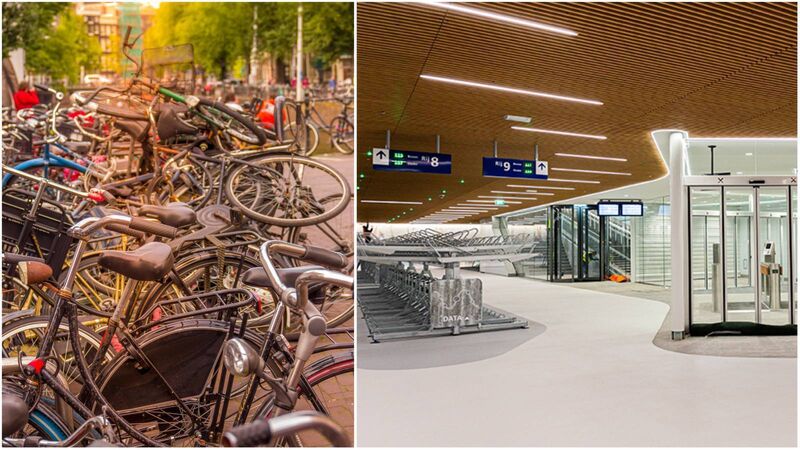An underwater bike garage that is next-level cycling infrastructure

From on-street bicycle parking to 2 new NS bicycle parking facilities. Around Amsterdam's Central Station there are a total of 4 bicycle parking facilities where you can park your bike for free every first 24 hours. Picture: www.amsterdam.nl
While the Netherlands is already internationally famous for its excellent bicycle infrastructure, the new bike garage just opened in Amsterdam arguably takes the Dutch cycle obsession to a new level.
Capable of holding up to 7,000 bikes and built at a cost of €60 million, the facility at Amsterdam’s central station isn’t the largest bike garage in the country. It does, however, have a very unique feature: It is located entirely underwater.







